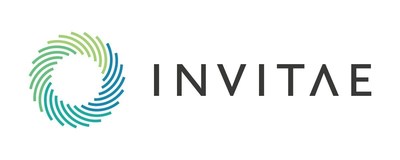Invitae, UCL and the Francis Crick Institute Announce New Data From TRACERx Research Collaboration at the 2021 International Society of Liquid Biopsy Congress
Rhea-AI Summary
Invitae (NYSE: NVTA), UCL, and the Francis Crick Institute presented new findings from the TRACERx lung cancer study, emphasizing the efficacy of liquid biopsies in detecting minimal residual disease (MRD) earlier than traditional imaging methods. The ECLIPSE tool, used alongside Invitae's Personalized Cancer Monitoring (PCM) liquid biopsy assay, showed enhanced detection of NSCLC relapse in 75 patients. These advances may revolutionize personalized cancer treatment and improve patient outcomes by enabling earlier intervention and more effective therapy monitoring.
Positive
- New data demonstrates that liquid biopsies can detect cancer relapse earlier than standard imaging methods.
- The ECLIPSE tool combined with Invitae's PCM assay showed improved efficiency in monitoring minimal residual disease (MRD).
- Potential for improving personalized cancer treatment and clinical trial designs.
Negative
- None.
News Market Reaction 1 Alert
On the day this news was published, NVTA declined 0.82%, reflecting a mild negative market reaction.
Data tracked by StockTitan Argus on the day of publication.
SAN FRANCISCO, Oct. 22, 2021 /PRNewswire/ -- Invitae (NYSE: NVTA), University College London (UCL), and the Francis Crick Institute today announced new data from their TRACERx lung cancer research collaboration funded by Cancer Research UK and sponsored by UCL. The data, presented by Professor Charles Swanton of UCL and the Francis Crick Institute at the International Society of Liquid Biopsy (ISLB) Congress, further validate the value of liquid biopsy as a less invasive and more comprehensive approach to guiding personalized cancer treatment in the absence of detectable disease by clinical imaging. Previously reported findings from the TRACERx cohort found that monitoring for cancer circulating tumor DNA (ctDNA) based minimal residual disease (MRD) detected relapse of non-small cell lung cancer (NSCLC) up to three years earlier than standard of care imaging surveillance in some instances.1
The study used a new blood-based informatic tool called ECLIPSE (Extraction of CLonality from LIquid bioPSiEs) with an earlier iteration of the Invitae Personalized Cancer Monitoring (PCM™) liquid biopsy assay to analyze plasma samples of patients in the TRACERx study. With this approach, data demonstrated multiplex-anchored PCR sequencing of the plasma samples enhanced MRD lead times relative to standard of care surveillance scanning and allowed holistic sampling of clonal dynamics, or tumor heterogeneity, with prognostic implications for disease progression.
"Tumours are highly heterogeneous and standard biopsies can miss important tumor traits. Our findings from applying our novel ECLIPSE software with Invitae's multiplex-anchored PCR technology, which powers the Invitae PCM assay, are promising. They underscore the tremendous potential of PCM for providing representative tumor sampling throughout the disease course, and most importantly at an early stage or at early recurrence in the absence of disease on standard imaging, which may in the future inform clinical trial stratification and the best treatment plans for patients," said Professor Charles Swanton, Cancer Research UK's Chief Clinician and a 2021 ISLB award recipient for outstanding scientific contribution in liquid biopsy. "Better understanding the true pathology of a patient's tumor, including driver and passenger clonal mutations, and identifying MRD earlier, are key to unlocking personalized cancer care and changing the paradigm of cancer drug development towards earlier intervention in the adjuvant setting where cures are more readily achievable."
Invitae's PCM is a pan-cancer, tumor-informed liquid biopsy assay that uses next-generation sequencing powered by Anchored Multiplex PCR (AMP™) to monitor MRD with high sensitivity at low variant allele fractions. The service employs a combination of a tumor profile, blood tests and personalized assays based on a patient's tumor with the goal of earlier detection of cancer recurrence through ctDNA before it is detectable by imaging or other conventional methods. ECLIPSE, developed by the Cancer Research UK TRACERx team at UCL and the Francis Crick Institute, uses a standardized algorithm that helps resolve tumor tissue-based sample bias. Coupling Invitae's PCM assay with ECLIPSE, the researchers analyzed 972 longitudinal plasma samples from 136 TNM I-III NSCLC patients in TRACERx who had undergone multiregion whole exome sequencing of primary tumor and relapse tissue and had 364 surveillance scans. Seventy-five of these patients experienced a recurrence of their surgically resected disease.
The researchers concluded that multiplex-anchored PCR with trinucleotide specific background models improves NSCLC relapse detection compared to standard of care clinical follow up. Using ECLIPSE, plasma samples of less than
"Determining the best treatment plan for a cancer patient depends on several factors, including the results of current disease monitoring. Unfortunately, traditional monitoring methods such as imaging and tissue biopsy are insensitive when it comes to adequately representing a tumor or detecting relapse early in a patient's treatment cycle," said Robert Nussbaum, M.D., chief medical officer of Invitae. "These findings further validate the role of PCM in determining a therapy's effectiveness and identifying relapses more quickly, both of which are essential to optimizing personalized treatment plans."
PCM and other liquid biopsy approaches for monitoring MRD have the potential to become a mainstay in personalized oncology. PCM could be applied in a variety of ways to help improve patient care and prolong survival outcomes, including monitoring for recurrence, monitoring a patient's response to therapy to inform treatment decisions, and improving clinical trial designs to help get new therapies to market sooner.
About TRACERx Study
TRACERx (Tracking Cancer Evolution through therapy (Rx)) lung study is the single biggest investment in lung cancer research by Cancer Research UK. Taking place over nine years, we believe the translational research programme is the first study to look at the evolution of cancer in real time and immense detail. Researchers follow patients with lung cancer all the way from diagnosis through to either disease relapse or cure after surgery, tracking and analysing how their cancer develops. TRACERx is led by UCL (University College London) via the Cancer Research UK Lung Cancer Centre of Excellence and also supported by the National Institute for Health Research, University College London Hospitals Biomedical Research Centre, Francis Crick Institute and the Rosetrees Trust.
About Cancer Research UK
- Cancer Research UK is the world's leading cancer charity dedicated to saving lives through research.
- Cancer Research UK's pioneering work into the prevention, diagnosis and treatment of cancer has helped save millions of lives.
- Cancer Research UK has been at the heart of the progress that has already seen survival in the UK double in the last 40 years.
- Today, 2 in 4 people survive their cancer for at least 10 years. Cancer Research UK's ambition is to accelerate progress so that by 2034, 3 in 4 people will survive their cancer for at least 10 years.
- Cancer Research UK supports research into all aspects of cancer through the work of over 4,000 scientists, doctors and nurses.
- Together with its partners and supporters, Cancer Research UK's vision is to bring forward the day when all cancers are cured.
For further information about Cancer Research UK's work or to find out how to support the charity, please call 0300 123 1022 or visit www.cancerresearchuk.org. Follow us on Twitter and Facebook.
About UCL (University College London) – London's Global University
UCL is a diverse community with the freedom to challenge and think differently. Our community of more than 41,500 students from 150 countries and over 12,500 staff pursues academic excellence, breaks boundaries and makes a positive impact on real world problems. We are consistently ranked among the top 10 universities in the world and are one of only a handful of institutions rated as having the strongest academic reputation and the broadest research impact. We have a progressive and integrated approach to our teaching and research – championing innovation, creativity and cross-disciplinary working. We teach our students how to think, not what to think, and see them as partners, collaborators and contributors. For almost 200 years, we are proud to have opened higher education to students from a wide range of backgrounds and to change the way we create and share knowledge. We were the first in England to welcome women to university education and that courageous attitude and disruptive spirit is still alive today. We are UCL.
About The Francis Crick Institute
The Francis Crick Institute is a biomedical discovery institute dedicated to understanding the fundamental biology underlying health and disease. Its work is helping to understand why disease develops and to translate discoveries into new ways to prevent, diagnose and treat illnesses such as cancer, heart disease, stroke, infections, and neurodegenerative diseases.
An independent organisation, its founding partners are the Medical Research Council (MRC), Cancer Research UK, Wellcome, UCL (University College London), Imperial College London and King's College London.
The Crick was formed in 2015, and in 2016 it moved into a brand new state-of-the-art building in central London which brings together 1500 scientists and support staff working collaboratively across disciplines, making it the biggest biomedical research facility under a single roof in Europe. http://crick.ac.uk/
About Invitae
Invitae Corporation (NYSE: NVTA) is a leading medical genetics company, whose mission is to bring comprehensive genetic information into mainstream medicine to improve healthcare for billions of people. Invitae's goal is to aggregate the world's genetic tests into a single service with higher quality, faster turnaround time, and lower prices. For more information, visit the company's website at invitae.com.
Safe Harbor Statement
This press release contains forward-looking statements within the meaning of the Private Securities Litigation Reform Act of 1995, including statements relating to the study results and implications thereof; the company's beliefs regarding the study, including that it highlights the promise of personalized care and further validates the value of liquid biopsy and the potential benefits of the company's PCM assay; and statements relating to the potential applications of PCM. Forward-looking statements are subject to risks and uncertainties that could cause actual results to differ materially, and reported results should not be considered as an indication of future performance. These risks and uncertainties include, but are not limited to: the company's history of losses; the company's ability to compete; the company's failure to manage growth effectively; the company's need to scale its infrastructure in advance of demand for its tests and to increase demand for its tests; the company's ability to use rapidly changing genetic data to interpret test results accurately and consistently; security breaches, loss of data and other disruptions; laws and regulations applicable to the company's business; regulatory approval and market acceptance of PCM; and the other risks set forth in the company's filings with the Securities and Exchange Commission, including the risks set forth in the company's Quarterly Report on Form 10-Q for the quarter ended June 30, 2021. These forward-looking statements speak only as of the date hereof, and Invitae Corporation disclaims any obligation to update these forward-looking statements.
Contact:
pr@invitae.com
(628) 213-3283
1 Abbosh Chris et al, Abstract CT023: Phylogenetic tracking and minimal residual disease detection using ctDNA in early-stage NSCLC: A lung TRACERx study. Cancer Res August 15 2020 (80) (16 Supplement) CT023; DOI: 10.1158/1538-7445.AM2020-CT023
![]() View original content to download multimedia:https://www.prnewswire.com/news-releases/invitae-ucl-and-the-francis-crick-institute-announce-new-data-from-tracerx-research-collaboration-at-the-2021-international-society-of-liquid-biopsy-congress-301406531.html
View original content to download multimedia:https://www.prnewswire.com/news-releases/invitae-ucl-and-the-francis-crick-institute-announce-new-data-from-tracerx-research-collaboration-at-the-2021-international-society-of-liquid-biopsy-congress-301406531.html
SOURCE Invitae Corporation








